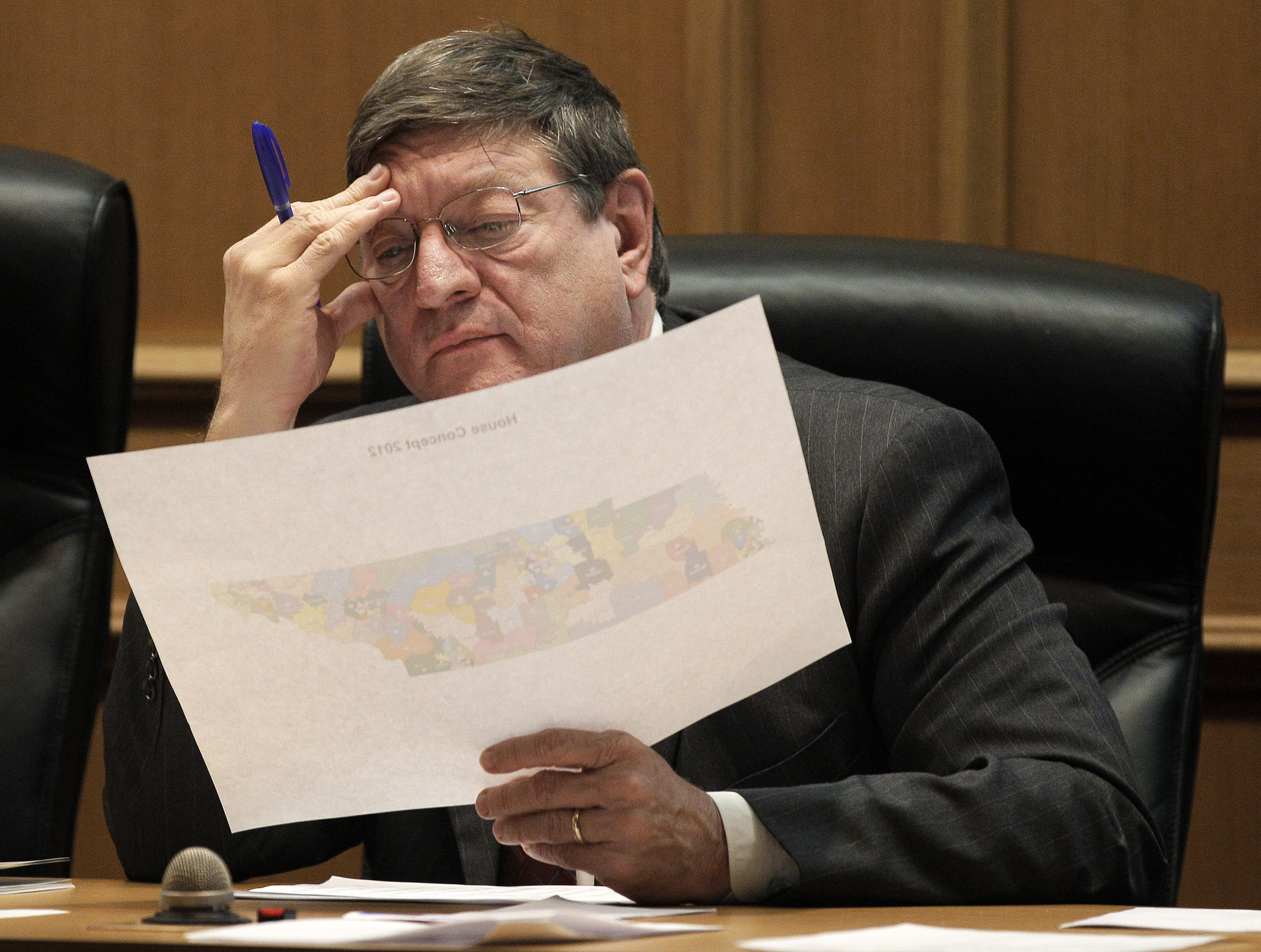Tennessee: GOP senators scale back Hope scholarship cuts
Friday, January 1, 1904
NASHVILLE - Senate majority Republicans performed major surgery on their bill that toughens lottery scholarship eligibility requirements Wednesday, inserting a provision that eliminates the 2015 change should current Tennessee Lottery growth hold steady.
The move could prevent 50 percent cuts for an estimated 5,000 students using lottery scholarships to attend four-year colleges or universities.
It remains on open question, however, whether the House Republican proponent of the bill, Rep. Harry Brooks, of Knoxville, will go along with the change.
Proponents have said the bill is necessary given that the lottery-funded Hope scholarship has been operating at a $17 million to $20 million deficit over the past few years.
But with lottery profits soaring $14 million over projections so far this fiscal year as well as a $366 million lottery reserve, Democrats have put proponents on the defensive.
On Wednesday, the GOP-led Senate Education Committee altered the bill, installing a trigger that would prevent the changes if lottery profits exceed last year's figures by $10 million up through 2015.
"The entire purpose of the bill is to make the program viable," Senate Education Committee Chairwoman Delores Gresham, R-Somerville, told committee members. "So if the Lottery Corp. continues to produce revenue at the higher level, then there's no need for the bill."
A leading critic of the proposal, Sen. Andy Berke, D-Chattanooga, commended Gresham for "listening to the facts as they [Lottery Corporation officials] testified a few weeks ago."
"I think that is sensible and good," Berke said. "On the other hand, I do want to make sure that I say nothing changes, really. We're going to make that number this year. Unless something goes wrong, we're going to exceed $10 million. So I think we're passing something just to pass something."
Gresham said she hopes Berke is right about lottery revenues holding up. Both she and Senate Speaker Ron Ramsey, R-Blountville, have fretted about the impact on lottery revenues if gas prices hit $5 as some project.
The Senate panel approved the amended bill on a 7-2 vote with Berke voting against the legislation.
But later in the House Education Subcommittee, sponsor Brooks said he saw no immediate need to change the bill.
House Speaker Emeritus Jimmy Naifeh, D-Covington, and House Minority Leader Craig Fitzhugh, D-Ripley, questioned that, saying there was no need to "eliminate" scholarships given lottery profits.
Brooks said the bill wouldn't eliminate the scholarships, just reduce the awards. Besides, he argued, those students can still use the $2,000 awards to attend two-year community colleges.
The tougher scholarship eligibility standards are "consistent" with the 2010 Complete College Act, which encourages college completion, Brooks declared. Students who don't meet the new standard should be attending community colleges, Brooks said.
Fitzhugh disagreed, saying the lottery reserve can withstand 20 years of deficits.
"Even the Senate has seen the error of their ways and now know we don't need to do this," he chided Brooks.
Democrats also didn't like the fact that students at traditional schools would have to meet the 21 ACT requirement and 3.0 GPA requirements.
But students who are home-schooled, pupils at virtual schools and students at unaccredited schools have to meet only the 21 on the ACT. The bill also requires those students to score a 21 on two of the ACT's four component tests.
Contact staff writer Andy Sher at asher@timesfreepress.com or 615-255-0550.
"If that were to be sustained that would take significant edge off of our dipping into reserves,"
Brooks said he wanted to move the bill to the full Education Committee. He said he would consider the Senate amendment but the full committee could take it up.
Education Committee Chairman Richard Montgomery, R-Sevierville, said he saw no reason why the bill couldn't be delayed a week and handled in the subcommittee.
Brooks agreed.
Rich Rhoda, executive director of the Tennessee Higher Education Commission, later told The Associated Press the new Senate proposal is "a good way to proceed." Some sort of mechanism is needed to protect lottery reserves, he said.
"I would hate to see the reserve be spent down and a few years from now we wonder why we didn't act earlier," he said.
Brooks said he wanted to move the bill to the full Education Committee. He said he would consider the Senate amendment but the full committee could take it up.

